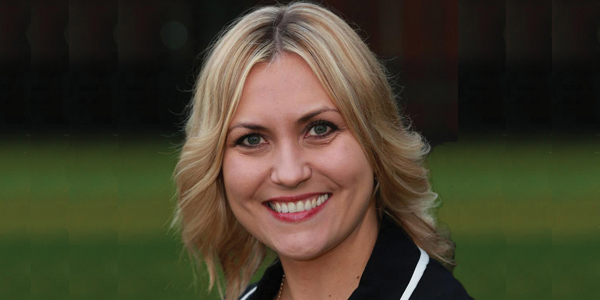Headteacher of Abbot’s Lea School reacts to the new lockdown measures

Following the Government’s announcement on Monday, Educate has reached out to headteachers and senior leaders to find out how they are feeling about the new lockdown and some school closures.
Here we speak to Mrs Ania Hildrey, headteacher of Abbot’s Lea School in Woolton.
How are you feeling about the latest lockdown and some school closures?
I absolutely agree with the governmental decision to implement lockdown and to restrict school’s onsite provision in order to minimise the spread of infection. In fact, I believe that the decision came too late and, if it had been made sooner – before Christmas break – with the clear either centralised or delegated local government position on schools’ operation, everyone would have been clearer and better prepared.
How will the latest lockdown effect the Abbot’s Lea School community?
As the Headteacher of a special school, we are expected to be open to all students, as 100% of our population is classed as vulnerable by the governmental guidance. Regrettably, this is simply not possible, when concurrently, the health advice is for the staff with complex underlining health conditions is to shield. Our workforce, whilst wonderfully committed, ever-willing to go the extra mile and hard-working well beyond the definitions of their contract, are all human, too and personally affected and so, simply cannot render a reliable service at this extraordinary time.
As a result, we had to risk assess our school operation and make some really difficult decisions about who, amongst all of our students, must be offered onsite provision as otherwise, their progress might be seriously inhibited; in fact, some may regress beyond what would be seen to be acceptable.
For a school with 271 students, age 3-19, we have prioritised the following groups for our onsite provision:
- Children of essential key workers, as defined by the central government
- Children currently on Child Protection Plans (CP, section 47)
- Children currently classed as Child in Need (CiN, section 17)
- Children who are Looked After (LAC)
- Children currently subject to Early Help Assessment Tool (EHAT)
- Children eligible for Free School Meals (FSM)
- Students in our Early Years and Key Stage 1 (the youngest of our learners)
- Students in our Nurture Provision (most complex special educational needs requiring therapeutic support)
- Students completing internal Supported Internships (students whose employability support is essential at this point in time for them to secure best future)
All other students will receive twice daily direct live interactive teaching via Zoom and will also have access to a wide range of non-interactive learning via our platforms.
All students, families and staff will continue to have access to our Mutidisciplinary Team support, including direct therapy, advice and guidance. Additionally, we support our staff and their families with Employee Assistance Programme which offers 24/7 advice, support, guidance and discreet therapy. This service is free of charge on the point of access for our team and their loved ones and offers wide-ranging services, including financial advice.
In short, it is tough, really tough, but we are doing all that we can to continue working with all students – some onsite and some remotely – in order to ride out this storm….
How will it impact both younger and older students with autism?
The impact of COVID-19 as a whole, this (and previous) lockdown specifically, and the interruptions to reliable, predictable, and socially-enriching direct delivery is difficult for everyone.
There is already a professional and societal consensus about our commitment to the key workers (whether NHS staff or many, many others) and our acceptance of the widening impact for those who are deemed socio-economically disadvantaged. There is another group though – and I speak from my own experience as a Headteacher and a mother – there are also major challenges for those who can be classed as money “rich” but time poor. As a Headteacher, I know I spend more hours of my life serving my students than I do my own children; this will be the reality for all essential key workers….
All of the above groups experience circumstances that challenge parenting. This, in turn, impacts our children – no matter what age they are – at the time when we feel torn, are exhausted and just hope to return to some kind of normality.
Arguably, challenges are more complex, as your child’s complexity of needs increases. I would not, however, say that all children with EHCP are more complex than all children without one.
Every person is different, every family’s circumstances are different and every child copes differently with the reality around them.
All we need to do is to seek to understand, seek to help and seek to always look to improve and diversify our ways of working to make the child we focus on thrive.




